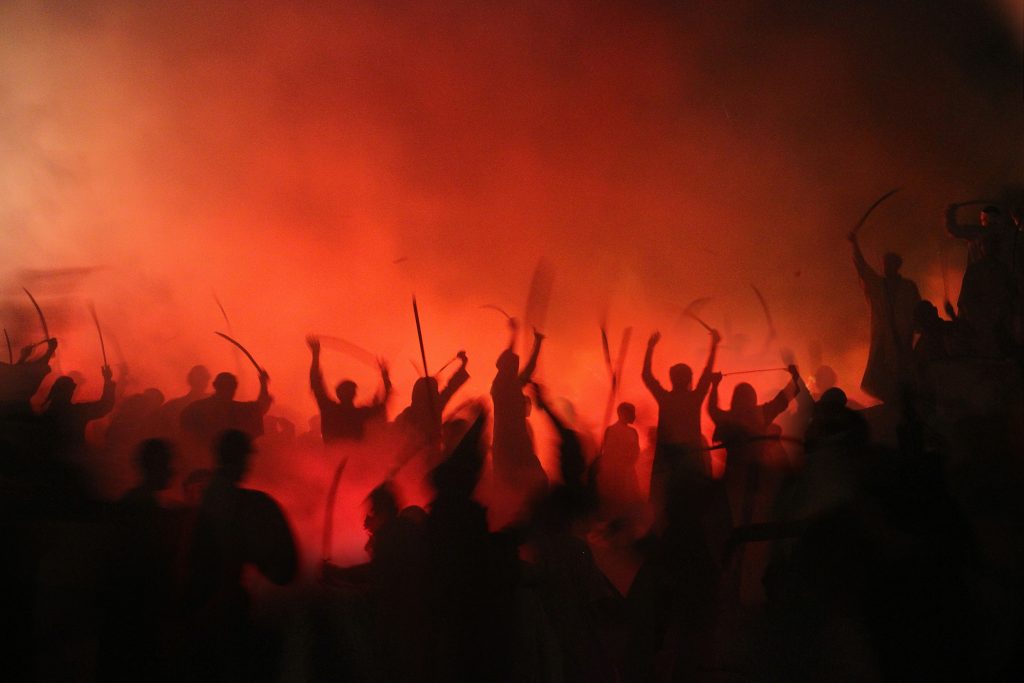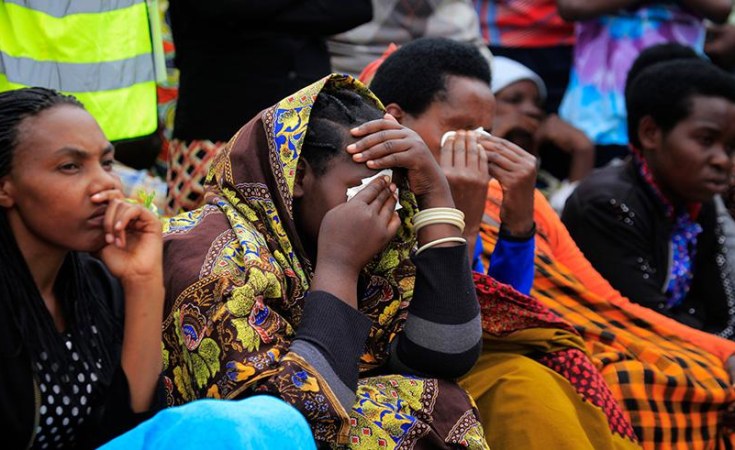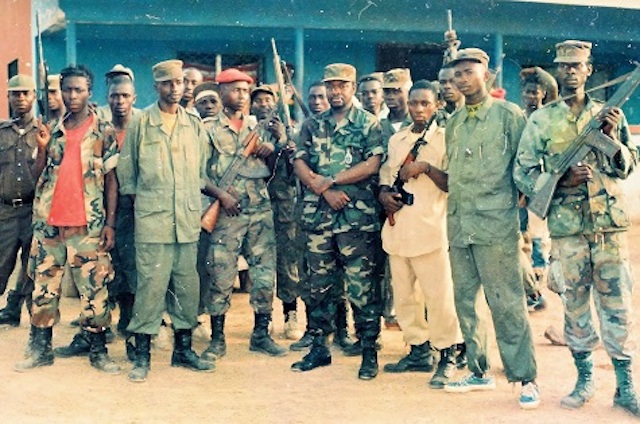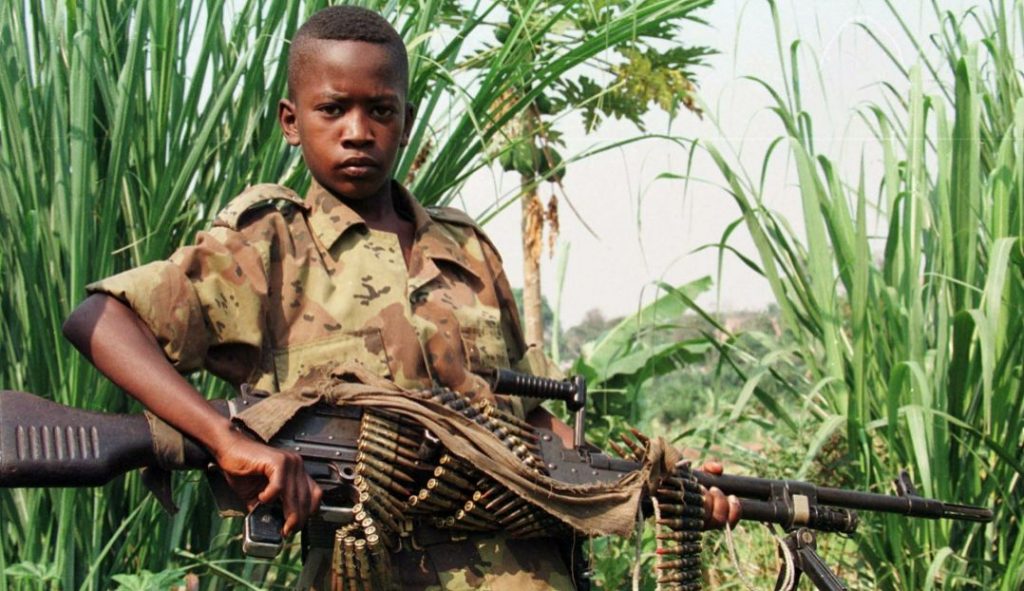The crimes he is suspected of, in both number and brutality, are rivaled by few in modern history. For his part in the first Liberian Civil War, which after a second civil war ending in 2003, contributed to a total death toll of approximately 250,000 people, Kunti K stands accused of 11,500 counts of various war crimes. And after a decade and a half on the run, the former United Liberation Movement of Liberia for Democracy (ULIMO) front-line commander, now a naturalized Dutch citizen, was apprehended in France, at the home of a friend without incident, he, as well as his accusers may finally have their day in court.
Though an exact date for trial has not been set, Kunti K’s trial will begin and likely end in France, thousands of miles away from the suspected atrocities presumably occurred. Currently, the lack of a war crime court in Liberia may all but guarantee the ex-rebel commander may never have to answer for his alleged war crimes in the land of his birth.
After a procedural technicality triggered his release from detainment after his first arrest in France in 2018, he was re-arrested earlier this year, reportedly because he sought plans to flee the country, thus violating one of the conditions for his release.
The length and breath of Kunti K’s alleged crimes go from the barbarous to the bizarre. The list if atrocities include murder, rape, slavery, use of child soldiers, and cannibalism, as well as other crimes against humanity.
Yet even the prospect of his alleged victims having their day in court, the legacy of these two brutal civil wars, as well as their inevitable after effects will cast a dark shadow over Liberia for decades to come, and perpetuate still more questions than answers in terms of Liberia’s future generations.
As Africa’s oldest republic, established upon the backs and with the sweat of former Africa-American slaves during the early half of the nineteenth century, Liberia’s history and culture occupies a unique place in a continent now considered the cradle for all humanity.
Yet, beginning in 1989 and ultimately ending in 2003, the strife of civil war descended upon the fledgling nation. Coupled with the Ebola outbreak in 2014, the most deadliest to date, tragedy has several times befallen this country that bears a term for freedom in its very name. For the residual damage of viral epidemic and war, civil or otherwise, lingers long after the last shot is fired and after the last victim has fallen.

Though the African continent, even currently, as seen its fair share of civil or genocidal warfare, remarkably few studies have been conducted and as such little is known about the psychological after effects of civil war, especially when it includes the deliberate and wholesale slaughter of civilian populations not directly involved in the conflict and often trapped politically between two or more warring groups. In fact, the official clinical application of post-traumatic stress disorder (PTSD) as the result of either participation in or bearing witness to wartime atrocities or genocidal behavior is a relatively new diagnosis.
A study published on BioMed Central in 2013, involving both survivors and prisoners forced to participate in the 3-month Rwandan genocide, which occurred in 1994, found evidence in both groups of multiple traumatic event types, especially among survivors who “reported that they experienced an average of twelve different events types,” and the study showed the worst of these events stemmed from observing violence or seeing dead or mutilated bodies. Despite being relatively brief, in comparison to other ethnically genocidal massacres, the Rwandan genocide was nothing short of cataclysmic as it claimed the lives 1 million people, 10% of the nation’s total population and 75% of the country’s Tutsi minority.

The 2013 study also revealed that survivors and prisoners forced to participate both, as result of exposure to war and genocide, showed “the strongest predictions for PTSD symptom severity.” The psychological stressors that triggered the disorder varied between each group. For survivors, it was predominately the memories of witnessing the suffering of others that triggered their post-traumatic symptoms. For forced participants, however, their triggers were more closely associated with memories of the physical attacks or fear of those attacks upon themselves, as so many prisoners had been subjected to beating and torture during their captivity.
Further, post-traumatic events, especially those including symptoms of depression and anxiety, are curiously persistent even among future generations born in Rwanda prior to 1994, and descendants of survivors and forced participants, ages 18-31, “developed a feeling of distrust and fear.” These findings appear verifiable in-line with an earlier study published by the American Psychological Association (APA), in 2008, entitled Resolution Against Genocide, that found “genocide has long term intergenerational traumatic effects in whole communities.” These effects are similar for both survivor and perpetrator alike, who both develop distorted thought patterns about themselves and others.

More recently in 2018, researchers Jutta Lindert, Haim Knobler, and Moshi Abramowitz, admitted that, still today, very little is known about traumatic memories after the period of genocide has passed and the “extent to which the memory of genocide predicts physical and mental disorders.” Their research concluded that traumatic memories, to those experiencing them, are not static, but on the contrary retain “a sense of nowness of the past.”
Another examination of the long term effects of the Holocaust conducted by Nazi Germany found that even among those that survived the onslaughtrecord a higher frequency of chronic illnesses such as cancer, hypertension, as well as predictable psychological issues like depression and anxiety. In some cases, survivors were almost five times more likely to be inflicted to these and other chronic illnesses. Anabel Starcosta, for Yale Global Health Review in 2016 explained,”although the genocide has ended, its effects and consequences on health continue to debilitate and devastate those who were targeted and their families.”
It is difficult to conclude whether a conviction of Kunti K or any other suspected Liberian war criminals of either civil war would have any lasting impact on the mental health of those who experienced any of the heinously traumatic events. Historically, perhaps, the conviction of he or other alleged war criminals may start to put an end to a very dark chapter in Liberia’s past.
 Yet what may linger, is the associated distrust in governance, that so often accompanies such permeating crimes. The failure of Liberia’s government to establish its own war crimes court, as well as President George Weah’s seeming reluctance to do so, has many in this scarred nation concluding there is a notable lack of accountability on the part of their leadership.
Yet what may linger, is the associated distrust in governance, that so often accompanies such permeating crimes. The failure of Liberia’s government to establish its own war crimes court, as well as President George Weah’s seeming reluctance to do so, has many in this scarred nation concluding there is a notable lack of accountability on the part of their leadership.
Legally, the lack of Liberian war crimes court also means that suspected war criminals apprehended abroad would either have to be prosecuted for crimes committed in the country where they were caught or under the provisions of Universal Jurisdiction. Such was the case for former-Liberian President Charles Taylor and his son “Chuckie,” who were currently convicted and are serving prison sentences in the United States for immigration violations. As they may never face justice in either the United States or Liberia for their suspected war-time atrocities their sentences, though lengthy, add nothing to the healing process of a nation.
As Liberia is woefully lacking in mental health practitioners, facilities, and organized treatment procedures, the failure to establish a prosecutorial apparatus for war criminals, may be a contributing factor to the high levels of mental health cases with direct links to the nation’s two bloody civil wars. It is estimated, as a result of the two civil wars and the 2014 Ebola outbreak, 20% of the country’s post-war population suffers from mental illnesses that include PTSD. Additionally, even after nearly two decades on from the conclusion of the second civil war, Liberia still lacks the needed mental health treatment resources to tackle their high rates of other typical post-war conditions such as substance abuse.
Until very recently, Liberia had only one practicing mental health clinician, Dr. Benjamin Harris, who conducted extensive interviews of students which showed at least 70% admitted seeing people tortured or killed. Even now, Liberia relies very heavily on charity organizations like Carter Center, based in Atlanta, Georgia, that have provided both clinicians and training for mental health counselors to deal with the 60% of Liberians who say, “ they lost confidence in human beings and society.” And beyond the lack of care facilities and practitioners, even if they were able to attend one of the country’s few mental health hospitals, like the John F. Kennedy Memorial Medical Center in Monrovia, many Liberians cannot afford regular treatment. Perhaps the lack of allocation of resources toward mental health treatment, centers, and training is rooted in the general cultural stigma attached to mental illness. This is particularly true among Liberians in rural areas who still view mental illness as a spiritual imbalance rather than a psychological one.
And beyond the lack of care facilities and practitioners, even if they were able to attend one of the country’s few mental health hospitals, like the John F. Kennedy Memorial Medical Center in Monrovia, many Liberians cannot afford regular treatment. Perhaps the lack of allocation of resources toward mental health treatment, centers, and training is rooted in the general cultural stigma attached to mental illness. This is particularly true among Liberians in rural areas who still view mental illness as a spiritual imbalance rather than a psychological one.
Indeed, outside the country’s few urban centers, “diseases such as depression and schizophrenia are often considered a curse and relegated to treatment from spiritual healers.” Whereof, those who suffer from mental illness as a result of war or pestilence are far more likely to be ostracized or punished than receive vital mental health treatment.





